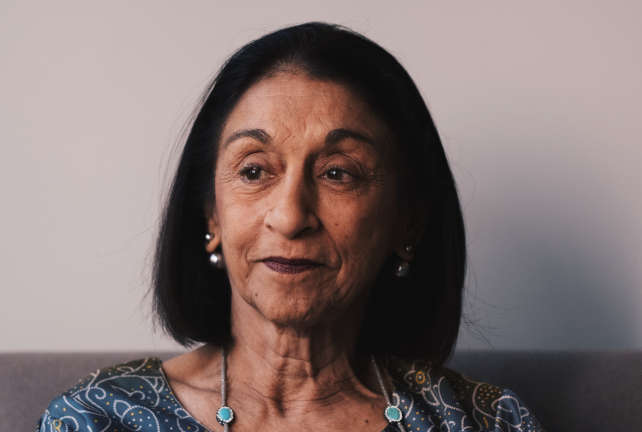
Did you know that dementia is one of the top causes of death in the U.S.? So, how do people die from dementia, and how does this relate to Alzheimer’s disease?
If you or a loved one has been diagnosed with dementia or Alzheimer’s disease, you probably have many questions. You’re not alone. Millions of Americans – and more around the globe – suffer from Alzheimer’s disease, the most common form of dementia.
Dementia patients experience a progressive decline in mental abilities, including loss of memory, judgment, and language skills. In its later stages, Alzheimer’s may affect essential functions such as swallowing or breathing.
In this article, we’ll share the answers to common questions surrounding dementia such as:
- Can dementia lead to death?
- Does dementia cause death?
- What usually causes death in Alzheimer’s patients?
- How many people die from dementia?
- How do people die from dementia?
Learning more about dementia and how it can be fatal is a necessary step in helping those suffering. With the right knowledge and specialized care, those with dementia and Alzheimer’s can enjoy a better quality of life.
But before we answer the question, “Can a person die from dementia?” let’s first explore what dementia is.
What Is Dementia?
Dementia is a mental impairment that includes the loss of memory and other important brain functions. The most common indication is a progressive decline in cognitive abilities. This process usually begins with memory issues and leads to trouble speaking or understanding language.
There are many different types of dementia (vascular, Lewy body, etc.), but the most common form of dementia is Alzheimer’s disease.
What Is Alzheimer’s Disease?
Alzheimer’s is a disease marked by a progressive decline in memory, judgment, language skills, and other mental abilities. In its later stages, Alzheimer’s may affect essential functions such as swallowing or breathing. This form of dementia usually affects older people, though some adults under 65 may be diagnosed with early-onset Alzheimer’s.
The cause of Alzheimer’s isn’t known, but genetics and changes in the brain play important roles. Unfortunately, there’s still no cure.
To understand what usually causes death in Alzheimer’s patients, you must consider the main issues that arise from this disease.
What Are the Complications of Dementia?
A common question people have when they hear that a loved one has dementia is, “How can you die from dementia?”
Though dementia itself may not be the final cause of death, the complications of dementia, like infections, cardiovascular diseases, malnutrition, and falls can be fatal.
Dementia often progresses through a variety of different signs and symptoms:
- Memory Difficulties and Loss: Memory issues are often the first signs of dementia, and they can be an ongoing problem with most patients.
- Disorientation: People with Alzheimer’s can become confused in familiar situations or surroundings, such as at home.
- Language Problems: This may be an issue with frontotemporal dementia, one of the less common forms.
- Problems Completing Complex Tasks: Problems following a set of instructions, such as “brush your teeth,” may signify that dementia is affecting higher-level brain functions.
- Wandering: People with dementia may wander and become lost or disoriented, even in familiar places.
- Physical Difficulties: Dementia may cause physical changes, such as weight loss or dehydration, affecting overall health. In late stage dementia, eating and walking can become difficult.
- Delusions and Hallucinations: People with delusions may become anxious or agitated. This problem can be worse at night.
Through all these stages, it’s important to have the right support in your corner. Dementia patients often end up requiring 24-hour in-home care to support them through the decline.
How Do People Die from Dementia?
With symptoms of dementia varying from person to person, many wonder, “What do dementia patients die of?”
While every case is different, there is some agreement on what usually causes death in Alzheimer’s patients and those with dementia. The following are some common challenges and complications of dementia that can play a part in someone dying with dementia.
Difficulty Eating
Physical changes in the brain often lead to problems eating. Difficulty swallowing can lead to dehydration, malnutrition, or pneumonia. If left untreated or without the proper care, these issues can expedite a decline in health and lead to death.
Difficulty Communicating Discomforts
Dementia patients may have trouble communicating when they feel ill due to a decline in verbal language capabilities. Normally, minor health conditions – such as constipation or bladder function – can ultimately become more significant complications.
In addition, those with late-stage dementia often can’t communicate much at all. This lack of communication hinders them from effectively alerting others to their discomforts and needs.
Difficulty Breathing
It’s not uncommon for people with severe dementia to stop breathing during sleep. This condition is known as “nocturnal hypoventilation.” Nocturnal hypoventilation can in turn lead to daytime hypercapnia, which means there’s too much carbon dioxide in the bloodstream.
If left untreated, daytime hypercapnia can lead to headaches, fatigue, and more serious complications.
Other Complications of Dementia
Dementia and pneumonia often go hand in hand. As the ability to properly swallow declines, liquids can tragically end up down the wrong pipe, often leading to infection in the lungs.
Other conditions that may lead to death include heart failure, blood clots, and dehydration. Additionally, individuals with pre-existing health conditions (e.g., diabetes, high blood pressure, etc.) can be at higher risk of death with dementia.
Why is Dementia Fatal?
So, does dementia cause death?
Ultimately yes, dementia can lead to death. But, it’s often not the sole culprit.
As seen from the list above, dementia causes complications that contribute to death. In addition, dementia affects brain functions that support life.
When the condition affects higher-level brain functions that support life, dementia may be considered a direct cause of death – such as when it causes a loss of appetite or difficulty swallowing.
How Many People Die From Dementia?
Based on the most recent research, nearly 6.2 million Americans over 65 suffer from dementia.
In 2019 alone, there were 121,499 deaths recorded as a result of this disease, earning it a top spot in the leading causes of death in Americans over 65.
These stark numbers likely underscore the reality of the issue. Unfortunately, as dementia progresses, people often die from infections or other secondary complications that official reports may not attribute to dementia.
Can People Recover from Dementia?
Unfortunately, there’s no cure for dementia or Alzheimer’s disease, though many studies are underway. In the meantime, it’s essential to understand how to help a loved one who has been diagnosed with dementia.
So, can a person die from dementia? Unfortunately, yes.
However, this doesn’t mean that those struggling are without hope or help. Educating yourself about the complications of dementia and causes of death in Alzheimer’s patients is a significant first step toward helping your loved one live as full a life as possible.
Bring Hope to Dementia Patients with Stowell Associates
If you have a friend or loved one diagnosed with dementia or Alzheimer’s disease, you may have many questions, like:
- What is dementia?
- Does dementia cause death?
- How do people die from dementia?
- Why is dementia fatal?
Dementia is a progressive disease, meaning that the complications of dementia get worse over time. Individuals with dementia often start with symptoms like forgetting new names and places. As dementia progresses, individuals can become confused in familiar places and even lose the ability to swallow or walk.
It’s often these more progressive symptoms that attribute to someone’s death, not the dementia itself.
But just because a loved one has dementia doesn’t mean they can’t enjoy life. There are still many things you can do to improve their quality of life, and getting professional in-home care is a good place to start.
The professional caregivers at Stowell Associates are here to help care for your aging loved ones. As a leading provider of caregiver and care management services in Milwaukee, Kenosha, Racine, and Waukesha, WI, Stowell can assist families and patients with:
- Dementia Care
- Chronic Disease Management
- Care and Companionship
- Medication Management
- Bathing and Grooming Assistance
- Feeding and Oral Hygiene
- 24/7 In-Home Care
Contact the team at Stowell Associates today for a complimentary consultation call. Our compassionate team is here to support you and your family through every stage of these conditions.













